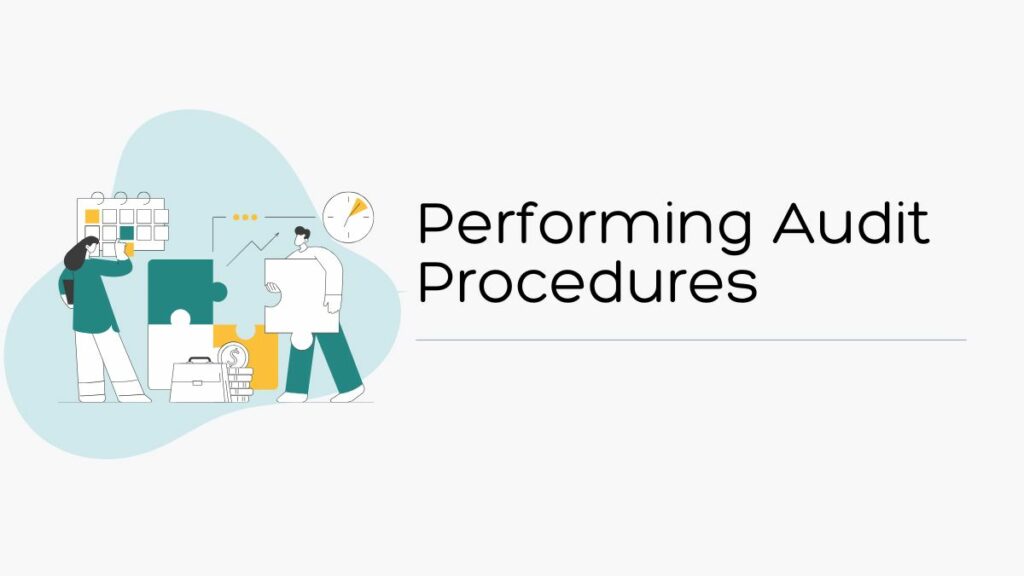The auditing process ensures financial statements’ reliability, accuracy, and regulatory compliance. Gathering reliable evidence is at the heart of an effective audit procedure. Based on these proofs, the auditors list their recommendations and draw conclusions.
Audit process techniques, from inquiry to observation and inspection to reporting, are actively used to collect reliable evidence. Therefore, understanding and applying them properly is vital to evaluating practices and risks and ensuring the organisation’s integrity. So, read on to learn more about these audit evidence collection methods.
Main Types of Audit Evidence
Before moving on with the evidence-gathering techniques for auditors, let’s first understand the main types of audit evidence. Since audit evidence depends on the business itself, it can take many different forms. Nonetheless, we can identify a few common types of audit evidence, such as:
-
Documentary Evidence
These include written records or evidence such as contracts, bank statements, and receipts. These are often considered the most reliable evidence in auditing.
-
Internal Documentation
These include the organisational policies, accounting manuals, and internal reports.
-
External Confirmations
These are the confirmations taken from outside parties to verify transactions or balances. These could be from banks, clients, vendors, or others connected with the business.
-
Physical Observation
Physical examination includes inventory, property, plant, and other tangible assets. These must be inspected frequently. Moreover, seeing how things are procured can also be considered physical proof.
-
Oral Evidence
This refers to gathering data from staff members or management through interviews and discussions.
-
Reconciliations and Computations
These two procedures confirm the completeness and correctness of financial data.
-
Analytical Evidence
Through ratio and trend analysis, the auditors gather analytical evidence.
These are some primary evidence auditors use to evaluate a company’s financial condition. However, if you wish to learn more, you can enrol in the CPA Program from Imarticus Learning.
Key Audit Evidence Collection Methods
Gathering enough relevant evidence for the audit procedure is one of the main duties of auditors, and there are several ways to achieve it correctly. Each auditor uses the following methods to collect data from clients:
Examining Records and Documents
The first evidence-collection technique for auditors is reviewing the company’s financial records. In this process, they mostly check the balance sheet, profit and loss statement, bank statements, contracts, invoices, accounting records, and other pertinent documents.
Examination of Tangible Possessions
In some businesses, an asset’s physical presence and state greatly influence its value and effect on financial statements. Therefore, to verify their presence and determine their value, auditors may physically check tangible assets like the company’s buildings, equipment, inventory, or other physical properties.
Observation
The next audit procedure step is observation. It entails monitoring different activities within the organisation. Additionally, it enables auditors to confirm financial transactions’ accuracy and evaluate internal controls’ efficacy and consistency.
Inquiry Method
Through the inquiry method, auditors ask knowledgeable people inside or outside the organisation for information. To clarify specifics, they frequently interview management, employees, or other parties. However, remember that an inquiry alone cannot be a full-proof audit evidence collection method.
Confirmation
Confirmation is the practice of getting a direct written answer from a third party to support the information the company under audit provides. Auditors frequently send confirmation requests to banks, clients, suppliers, and other outside parties to gather trustworthy evidence.
Recalculation
Recalculation is the process of independently rerunning computations or mathematical operations. Auditors’ work is to confirm that the figures in the financial accounts are accurate. In this situation, auditors recalculate salary data or interest expenses to find potential misstatements or computational errors.
Reperformance
Reperformance is the independent testing of internal controls or processes within an organisation. This aids in verifying the accuracy and dependability of the business’s systems and procedures.
Analytical Procedures
The analytical process is the most challenging aspect of gathering evidence for the audit procedure, necessitating in-depth research. For example, you must identify company patterns, examine financial data, and highlight odd fluctuations. Usually, you’ll accomplish this by contrasting the current data with historical data and industry standards.
Verifying the Reliability of the Evidence
To ensure the collection of reliable evidence in auditing, the auditors must assess the trustworthiness of the information by considering its type and source. For instance:
- Evidence gathered from impartial third parties—like banks or clients—is more trustworthy than in-house evidence.
- Evidence gathered through investigation is frequently less trustworthy than direct evidence, such as physical inspection or reperformance.
Therefore, by employing these methods, auditors gather data that satisfies the standards for quantity and quality to produce a well-founded audit conclusion.
Final Words
The secret to an audit’s effectiveness is knowing and using the proper audit procedure to collect trustworthy evidence. Every method, from reviewing documentation to getting confirmations from outside sources, is essential to precisely evaluating a business’s financial situation. Therefore, gaining proficiency in these methods guarantees that your audit results are supported by reliable and solid data, promoting transparent financial reporting that improves the company’s position in the market.

